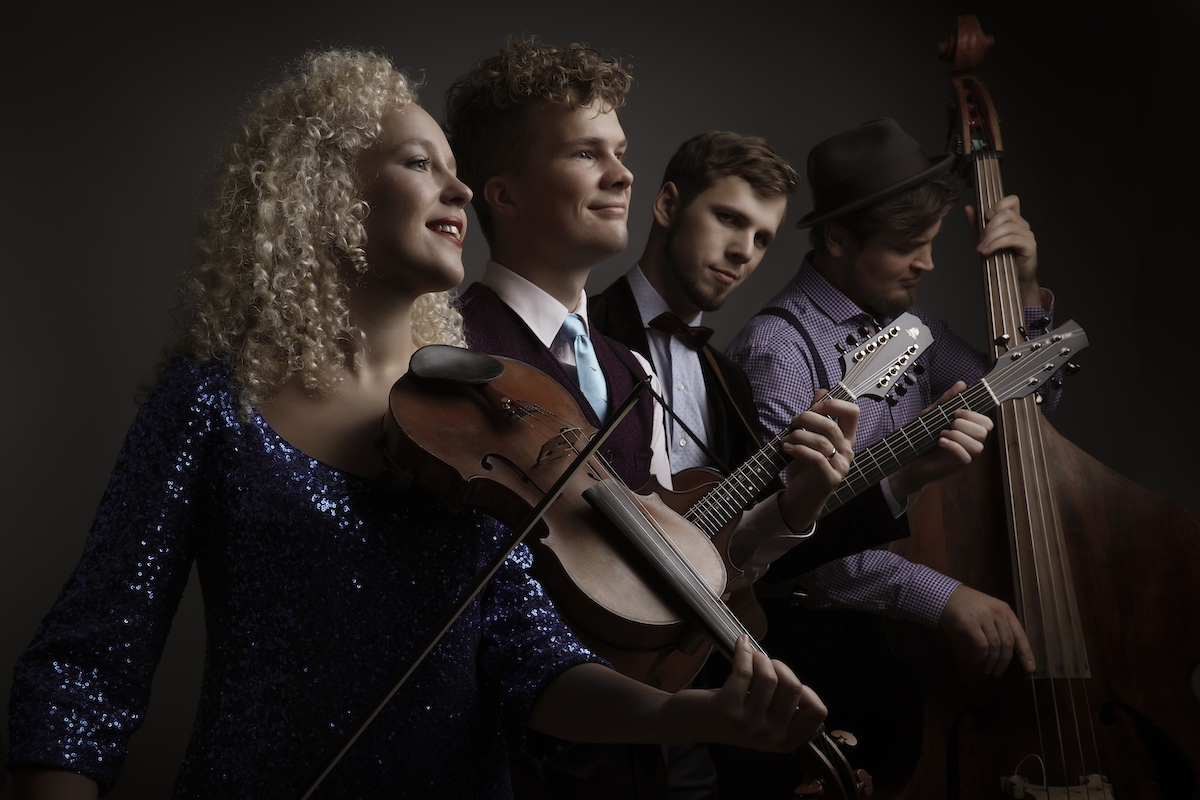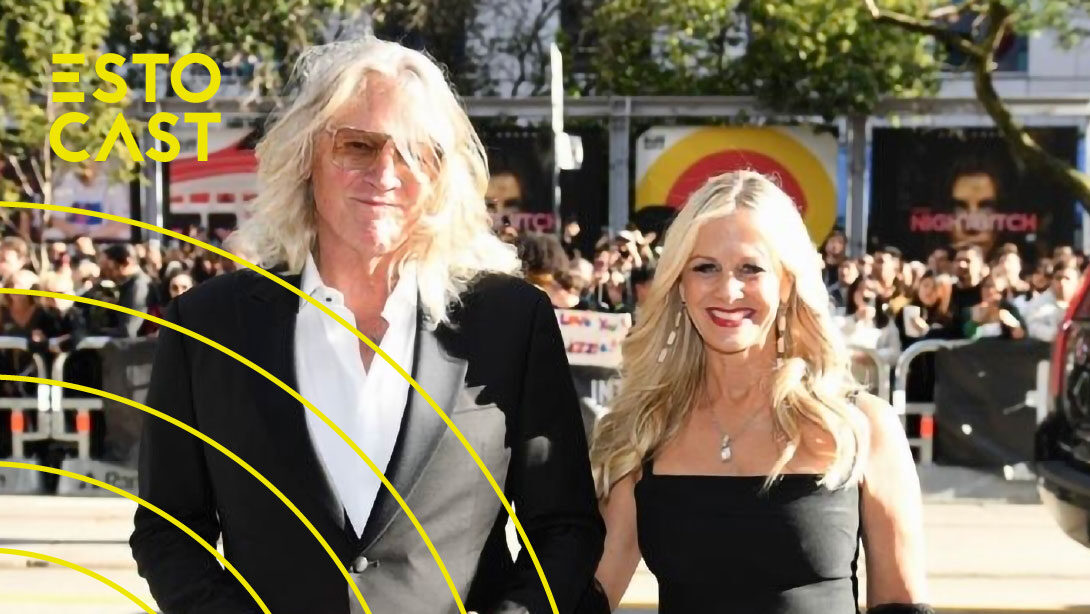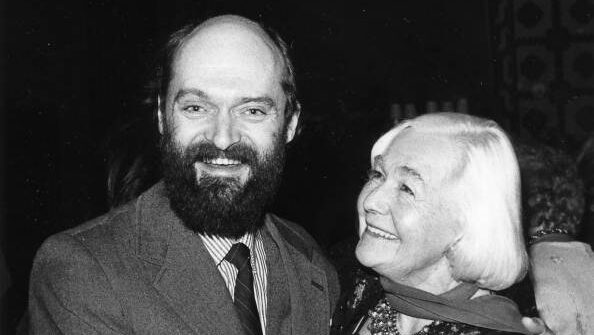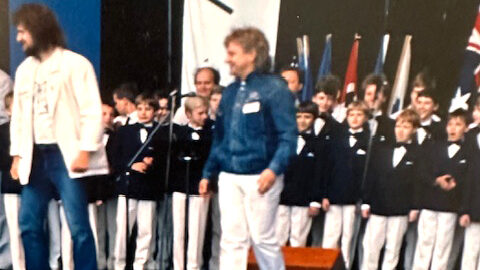The main melody flutters very gently from the beginning, despite the terrifying circumstances surrounding the song. Eeva Talsi's characteristic vocal timbre, Jaan Jaago's bright guitar harmonics, and the springy woody tone of Villu Talsi's mandolin-playing soothes the listener as they hear of the young man's memories of his family farm. Approaching the mill where he grinds the rye and oats they grow, he reminisces about listening to “akordionmäng ja naabrineidude naer” (“last night's squeezebox tunes…and the laughs of the neighbour girls”). He is happy in this home of his, comfortable in its familiarity and the moments he shares with his loved ones.
But by the time we hear of his memories, we are sharply reminded that this is not another day on the farm. He heads towards the mill, fearing for his life and that of his family. A man from his village told him that “su ema ja vend on Siberi teel / kodus püssimehed ootamas sind” (“Your mother and brother are Siberia-bound /… riflemen await you at home”).
When listeners reach the rousing refrain of the song, we come to find that this man, Eeva's grandfather, is talking to a horse who is dear to him (“mu hobuke hea”). He must act quickly in the moment, so that he is not captured. He sends this equine companion of his back to the homestead, along with the last of the barley and oats he would grind at the mill. He knows that the horse will find its way back, and he's determined that no one will catch him (as in the title, “mind nad kätte ei saa”).
And no one did catch him. We're not told what happened to Aksel after this delicate, frightening moment, but we sit in his mind and hear of what he fears. He is afraid of losing those precious memories he recounted on the way to the mill. He's afraid of what will happen to his family, of the music ceasing, and of a cold and empty house with an untended and overgrown path.
Against all odds, Aksel was able to escape a future of cold, forced labour, and starvation in Siberia. His deportation record, as with all others who escaped this deportation, would be erased permanently. He escaped with his life and the potential to start fresh.
But as the lyrics suggest (written by Kristiina Ehin and Ly Seppel-Ehin, translated into English by Adam Cullen) nothing would ever be the same again. Life would be carried out with the harsh realities of collectivization in place. For people like Aksel, livestock such as his horse would have been taken away by force. Anecdotes from our friends and family would suggest that some people sneaked out at night to go secretly feed their farm animals.
The video for this song captures moments of delight surrounded by loss, from the perspective of a little boy. This choice of perspective is particularly hard-hitting considering how a large percentage of those deported were children.
The cinematography is sensitive and subtle. There are only indications of trouble, as it might be remembered or seen by a child. We see events unfold as through the eyes of a child as if they were covered by a parent, or if they were seen through the space between a door. There are men in dark coats approaching the house, presumably secret police, and the silhouette of a Soviet soldier.
Just as in the beginning of the song, however, we are taken back to better times, with those nightmares morphed into a memory of a warm, glowy dinner at home with family, just before the symbolic grey gloom snaps it all away.
Sonically-speaking, there is a tenderness in Curly Strings' delivery, that is both respectful to the memory of the song's subject, but also reflective of the peace that was once enjoyed by all of the Estonians who were deported.
With Curly Strings, you can usually expect one side of a spectrum or another. This spectrum goes from sweet solemnity to earnest fanfare. Though in this particular song, I sense the strength you would see in a horse as it moves from a trot, to a canter, and into a full gallop. They create a kind of release when they dig into the notes, Taavet Niller's punctuating bass, and harmonies halfway through the song. The way these four musicians utilize dynamics is very satisfying.
Toronto audiences had a chance to listen to this song before its release when Curly Strings played at Tartu College on September 17th, 2019, hosted by the Estonian Music Week Culture Club. Audiences were very fortunate to have the band share the song with them in an intimate moment like that, but we are also fortunate to share their creation with others now.
You can listen to the song for yourself on Spotify:
(https://open.spotify.com/album/6u584Cw9l4itbvGmc8QPeT)
and Apple Music: (https://music.apple.com/ca/album/mind-nad-kätte-ei-saa-single/1503165768).
Both the official video (https://www.youtube.com/watch?v=U8kOTfZ-6Bw) and audio (https://www.youtube.com/watch?v=xW-maURfhLw) can be found on YouTube.
***
By the way—are you interested in seeing notable Estonian musical artists, such as Curly Strings, play here in Canada? What about watching those Estonian artists play together with Canada's trailblazing musical talent? Over the last two years, Estonian Music Week has hosted concerts for musical tastes of all kinds. We wanted to take this time to encourage you to listen to and support past artists who have played for Estonian Music Week audiences. See what it's all about at: www.estonianmusicweek.ca
Written by Vincent Teetsov, Toronto




